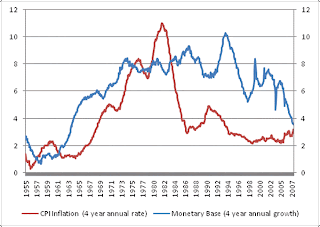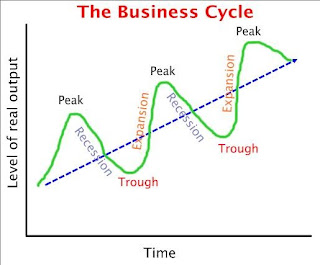
Scope of the philosophy of economics
Definition and ontology of economics
The first question usually addressed in any subfield of philosophy (the philosophy of X) is "what is X?" A philosophical approach to the question "what is economics?" is less likely to produce an answer than it is to produce a survey of the definitional and territorial difficulties and controversies.
Ontological questions continue with further "what is..." questions addressed at fundamental economic phenomena, such as "what is (economic) value?", "what is a market?". While it is possible to respond to such questions with real verbal definitions, the philosophical value of posing such questions actually aims at shifting entire perspectives as to the nature of the foundations of economics. In the rare cases that attempts at ontological shifts gain wide acceptance, their ripple effects can spread throughout the entire field of economics.
Methodology and epistemology of economics
An epistemology deals with how we know things. In the philosophy of economics this means asking questions such as: what kind of a "truth claim" is made by economic theories - for example, are we claiming that the theories relate to reality or perceptions? How can or should we prove economic theories - for example, must every economic theory be empirically verifiable? How exact are economic theories and can they lay claim to the status of an exact science - for example, are economic predictions as reliable as predictions in the natural sciences, and why or why not? Another way of expressing this issue is to ask whether economic theories can state "laws". Philosophers of science have explored these issues intensively since the work of Alexander Rosenberg and Daniel Hausman in the 1970s.
Game theory and economic agents
Game theory is shared between a number of disciplines, but especially mathematics, economics and philosophy. Game theory is still extensively discussed within the field of the philosophy of economics. Decision theory is closely related to game theory and is likewise very strongly interdisciplinary. Philosophical approaches in decision theory focus on foundational concepts in decision theory - for example, on the natures of choice or preference, rationality, risk and uncertainty, economic agents.
Ethics of economic systems
The ethics of economic systems deals with the issues such as how it is right (just, fair) to keep or distribute economic goods. This area overlaps strongly with other disciplines. Approaches are regarded as more philosophical when they study the fundamentals - for example, John Rawls' A Theory of Justice (1971) and Robert Nozick's Anarchy, State and Utopia (1974).
Utilitarianism, one of the ethical methodologies, has its origins inextricably interwoven with the emergence of modern economic thought. Today utilitarianism has spread throughout applied ethics as one of a number of approaches. Non-utilitarian approaches in applied ethics are also now used when questioning th e ethics of economic systems - e.g. rights-based (deontological) approaches.
Many political ideologies have been an immediate outgrowth of reflection on the ethics of economic systems. Marx, for example, is generally regarded primarily as a philosopher, his most notable work being on the philosophy of economics.
Non-mainstream economic thinking
The philosophy of economics defines itself as including the questioning of foundations or assumptions of economics. The foundations and assumption of economics have been questioned from the perspective of noteworthy but typically under-represented groups. These areas are therefore to be included within the philosophy of economics.














![One of the assumptions of perfectly competitive markets is that there are many producers, none of which can influence prices or act independently of market forces. In reality, however, people do not simply trade on markets, they work and produce through firms. The most obvious kinds of firms are corporations, partnerships and trusts. According to Ronald Coase people begin to organise their production in firms when the costs of doing business becomes lower than doing it on the market.[77] Firms combine labour and capital, and can achieve far greater economies of scale (when producing two or more things is cheaper than one thing) than individual market trading. Labour economics seeks to understand the functioning of the market and dynamics for labour. Labour markets function through the interaction of workers and employers. Labour economics looks at the suppliers of labour services (workers), the demanders of labour services (employers), and attempts to understand the resulting patterns of wages and other labour income and of employment and unemployment, Practical uses include assisting the formulation of full employment of policies.[78] Industrial organization studies the strategic behavior of firms, the structure of markets and their interactions. The common market structures studied include perfect competition, monopolistic competition, various forms of oligopoly, and monopoly.[79] Financial economics, often simply referred to as finance, is concerned with the allocation of financial resources in an uncertain (or risky) environment. Thus, its focus is on the operation of financial markets, the pricing of financial instruments, and the financial structure of companies.[80] Managerial economics applies microeconomic analysis to specific decisions in business firms or other management units. It draws heavily from quantitative methods such as operations research and programming and from statistical methods such as regression analysis in the absence of certainty and perfect knowledge. A unifying theme is the attempt to optimize business decisions, including unit-cost minimization and profit maximization, given the firm's objectives and constraints imposed by technology and market conditions.](https://blogger.googleusercontent.com/img/b/R29vZ2xl/AVvXsEjHGVsaKuOwjFtVl4DmUyAcvUA1fksu9ginIWha-PU-sinrST3YFNOornoFtetKL-jSOBvMYKI6gDedRG2W5Y3VFSSia2QZ3sadRloGztnxCnZFBtzwbpAQzbiV5PegNQuuKNSfbSHelKs/s320/firm.jpg)














